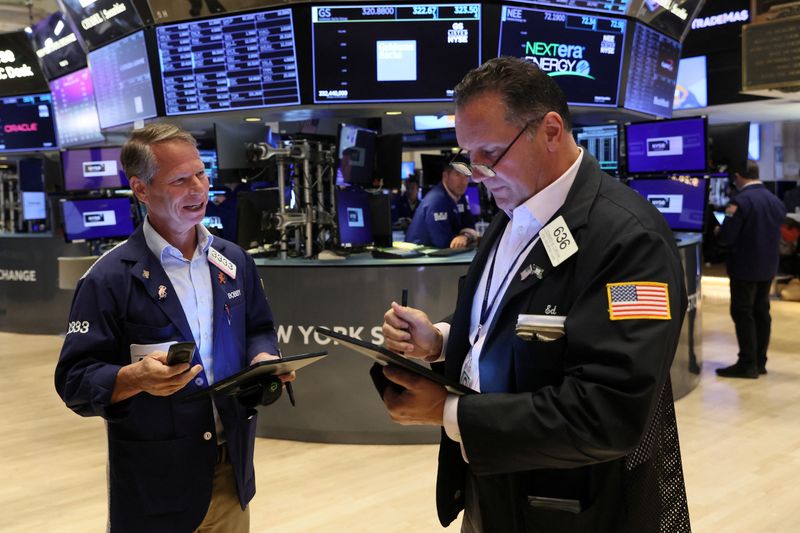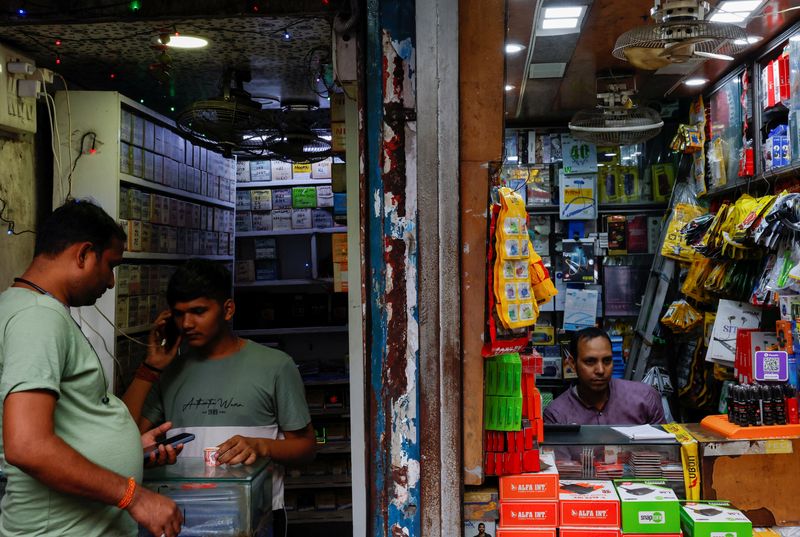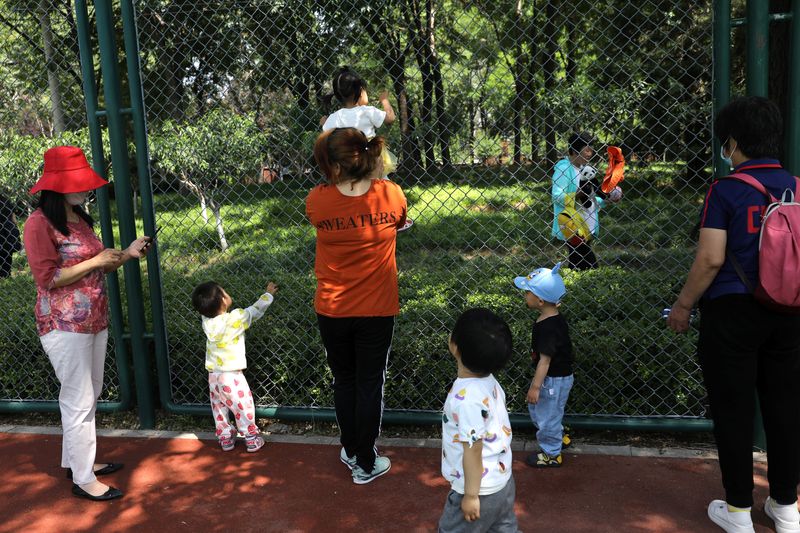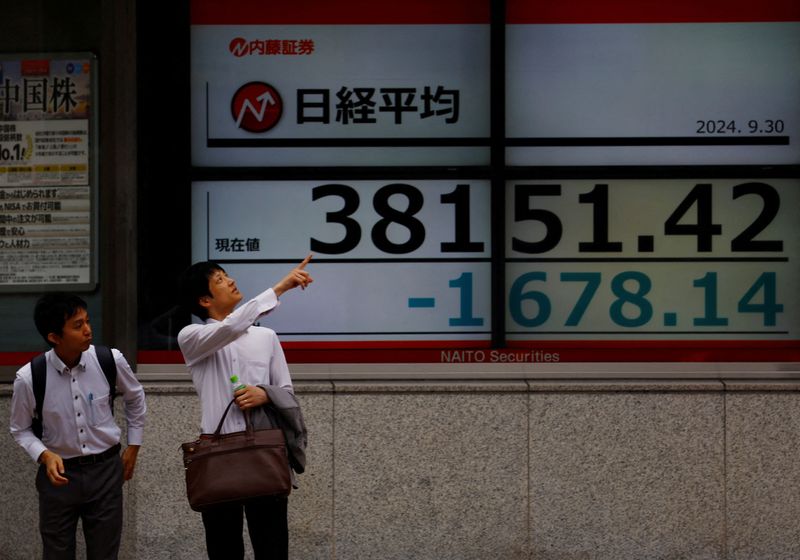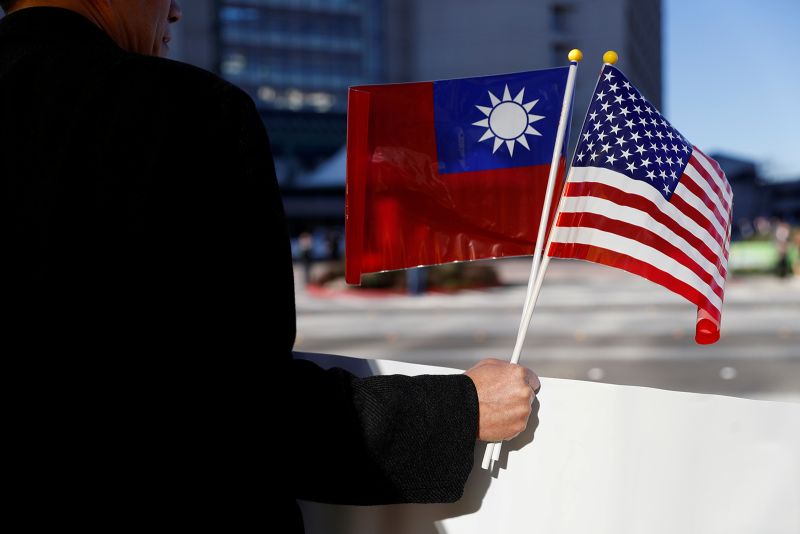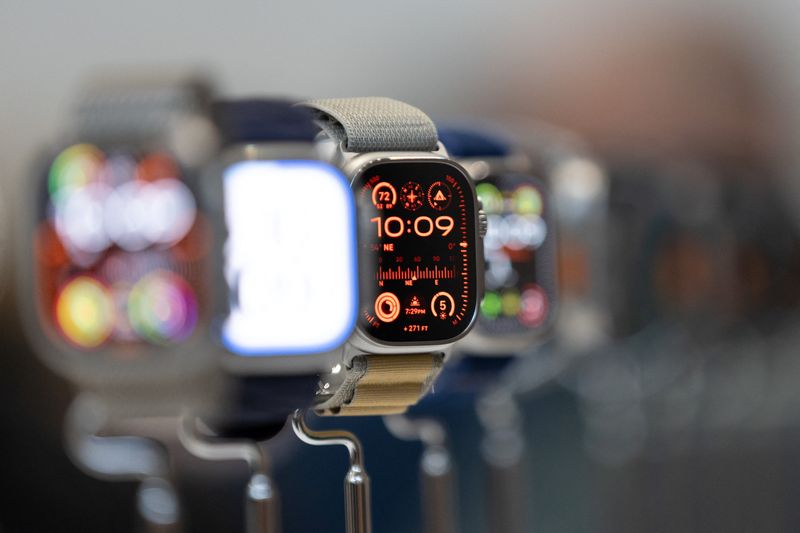Japan’s political shakeup complicates BOJ, fiscal policy outlook
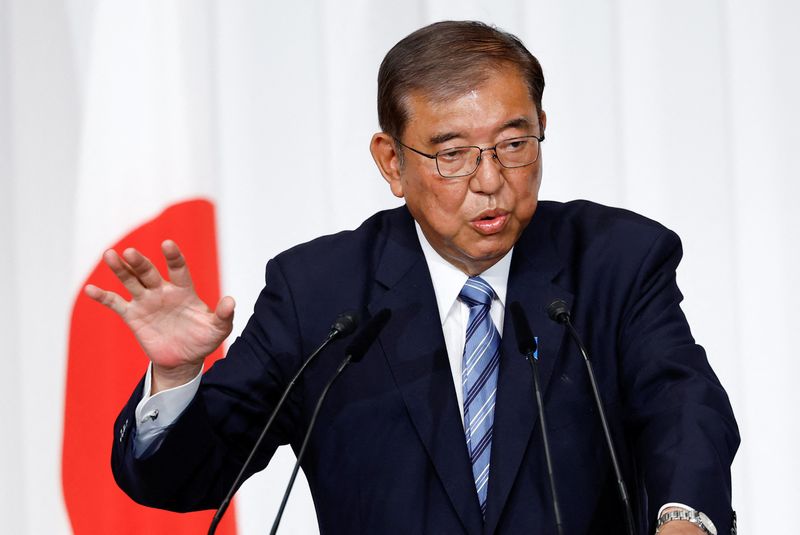
By Makiko Yamazaki
TOKYO (Reuters) – The loss of Japan’s ruling bloc’s parliamentary majority has heightened prospects that a new government will need to ramp up spending and of potential complications for further central bank interest rates hikes.
Prime Minister Shigeru Ishiba’s ruling Liberal Democratic Party (LDP) and its longtime partner Komeito failed to retain a majority in lower house elections on the weekend, casting doubts over how long the 67-year-old premier can keep his job.
“Regardless of who will be in power, the new government will be forced to take expansionary fiscal and monetary policies to avoid inflicting burdens on voters,” said Saisuke Sakai, senior economist at Mizuho Research and Technologies.
To stay firmly in power, the LDP, which has governed Japan for almost all its post-war history, will likely need to court smaller opposition parties, such as the Democratic Party for the People (DPP) and Japan Innovation Party (JIP), as coalition partners or at least for policy-based alliances.
Both smaller parties have ruled out forming a coalition with the LDP but said they are open to some policy cooperation.
In their election campaigns, both the DPP and JIP pledged to lower consumption tax from 10%. DPP’s proposals also included cutting power utility bills and tax for lower-income earners.
While Ishiba has already proposed a supplementary budget that exceeds last year’s 13 trillion yen ($85 billion), he could face pressure for a package that exceeds 20 trillion yen, Sakai said.
‘POLITICAL NOISE’
The heightened political turmoil could make it harder for the Bank of Japan in its bid to wean the economy off decades of monetary stimulus, analysts say.
The central bank ended negative interest rates in March and raised short-term rates to 0.25% in July on the view Japan was making progress towards durably achieving its 2% inflation target.
BOJ Governor Kazuo Ueda has vowed to continue lifting rates and economists don’t see any major immediate change to the broader policy direction.
However, a markedly new parliamentary makeup could deprive the BOJ of the political stability it needs to steer a smooth lift-off from near-zero interest rates, analysts say.
“The bar is higher for the BOJ to raise interest rates again by the end of this year amid this political noise,” said Masahiko Loo, senior fixed income strategist at State Street (NYSE:STT) Global Advisors.
DPP leader Yuichiro Tamaki has criticised the BOJ for raising rates prematurely.
JIP proposes legislative changes that would mandate the central bank with objectives beyond just price stability, such as sustained nominal economic growth rate and maximization of employment.
Conversely, the biggest opposition, Constitutional Democratic Party of Japan, has called for BOJ’s inflation target to be lowered to one “exceeding zero” from 2% currently, which would reduce the threshold for more rate hikes.
At the same time, a weak yen could become a headache for Japanese policymakers by boosting the cost of imported raw materials, pushing up inflation and hurting consumption.
If the yen weakens toward 160 per dollar, the BOJ “would be pressured to raise rates again to stem the weakness of the Japanese currency,” said Takeshi Minami, chief economist at Norinchukin Research Institute.
The need for another rate hike could also grow if a yen downturn is accelerated by a Donald Trump victory in the U.S. presidential election on Nov. 5, he added.
Trump’s tariff and stricter immigration policies are seen as inflationary, which would diminish the need for U.S. rate cuts, in turn pushing the dollar up against the yen.
“The visibility has gone down significantly for the BOJ,” Minami said.
($1 = 153.5700 yen)
